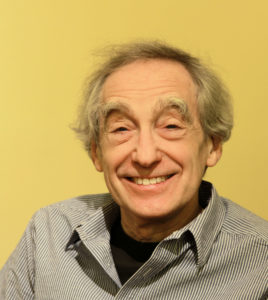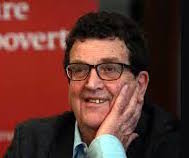By Barry Knight and Colin Greer
I dream’d in a dream, I saw a city invincible to the
Attacks of the whole of the rest of the earth;
I dream’d that was the new City of Friends.
Walt Whitman
The unseen driver of our troubles causes no pain. But it is quietly destroying you and me. What is it?
We reckon that most of you will have thought of cancer. That is a good answer because in the early stages you can’t see cancer and it causes no pain so you don’t know it is there. But it is not the answer we are seeking because the question we are asking relates, not to the individual, but to wider society.

What is the societal equivalent of cancer? Answers to this question usually involve terms like ‘war’ or ‘crime’ or ‘poverty’. But these are mere symptoms of the problem. The answer is far more pervasive and invidious. It rarely shows itself directly, yet always undermines our efforts to solve society’s problems, and ensures that our solutions never stick.
The answer is ‘scarcity’ – defined as the perception that we never have enough. Although no legislation or formal rules govern our behaviour, scarcity is woven into the way we do business. Take, for example, Lionel Robbins’ classic definition of economics as ‘the science that studies human behaviour as a relationship between ends and scarce means which have alternative uses’. So long as we are subject to such economics, we will never have enough because means will always be regarded as scarce no matter what the supply is like.

Scarcity may in fact be embedded into our unconscious psyche. Studies of Stone Age economics confirm what religious texts and psychoanalytic studies have told us: that even at times when material goods were plentiful, the high prevalence of infant death meant that bonding with the mother was delayed until there was a strong likelihood that the child would survive. This may have led to very young children habitually longing for an embrace that never came.
Over generations, such infantile longing has become the leitmotif for our cultures, driving a sense of scarcity that could never be satisfied and leading to a process of overcompensation. This may explain why CEOs of our companies seek more and better pay packages when they currently earn more money than they can ever spend. Maslow’s hierarchy of needs suggests that once our basic needs for food, safety and shelter are fulfilled, we can move onto higher things like love and belonging, esteem and self-actualization. However, the sense of scarcity trips us up and means that we think that five-star hotels and limousines are part of our basic needs.
Pursuing such false needs means that we are constantly in ‘hunter’ mode – seeking more and more material resources. And yet, both archaeological and anthropological studies of hunter gathering peoples show that the gatherer mode accounted for more of the food supply than the hunter mode. This means that the collaborative relations of the women gathering were equally if not more critical to community wellbeing than the bond between the male hunters. Yet, it is the hunters’ paradigm that has come to dominate our approach to our social systems, leading to hierarchies of power and privilege. So, while the wholesome qualities of collaborative relationships are central to social equilibrium, it is the scarcity based mores and conventions of the hunter mentality that continue to dominate.
This trans-historical analysis shows that scarcity is both prehistorically given and historically reproduced in social systems and organizations. As the scarcity engine runs a constant search for new wealth, this, in turn, leads to rampant inequality. The consequences are that eight people own the as much as the poorest 50 per cent of the world’s population.
Such inequality is now recognized as highly damaging for everyone because it drives bad societies, affecting people at the top end of the distribution as well as making scarcity a grim reality for those towards the bottom. It is bad for the planet too as the never-ending quest for economic growth is at odds with its ecology.
There is much talk in philanthropy and development circles about ‘system change’. But our efforts so far haven’t worked, largely because we haven’t managed to deal with the unconscious roots of the current system. While the scarcity engine keeps running, there will always be regression to the old system.
Let us take some examples:
- The search for alternatives, such as cooperatives and other shared ownership models, often runs into the sand because of competitive behaviour by the people involved.
- Area based programmes designed to reduce poverty often reproduce the hierarchies found in wider society and do little to change people’s underlying mind-sets.
- Campaigns that require ‘new’ behaviour such as for civil rights or women’s rights don’t produce permanent gains because they involve a tug of war between competing values and retrogressive forces that can always push back, ensuring that any victories are merely temporary.
- Calls to abundance tend to be individualistic exhortations to ‘seek your bliss’, and typically operate in isolation from wider society and so do little to change systems.
Religious devotees and seekers after meaning and truth have found ways of downplaying ego, taming the desire to conquer and win, and conveying dignity on all people, while treating our planet with the care and respect it deserves. However, social systems have not yet found equivalent ‘tools’ – the term used by Ivan Illich – to give us practical steps, as opposed to abstract theories, to allow us to make the changes we need.
So how do we change? To find the answer, let us return to Walt Whitman. For him, the number one quality is love, and all other qualities are subordinate to it. Some of these qualities include dignity, sufficiency and mutuality, kindness and conviviality. But without a deep wellspring of authentic and unconditional love, they are always provisional and can be undermined at any moment.
In service relationships where human to human goodwill determines expectations and effectiveness, it may be possible to explore ‘tools’ for achieving Martin Luther King’s ‘beloved community’ (a society based on justice, equal opportunity, and solidarity with one’s fellow human beings).
Our next step is to identify the building blocks for Whitman’s ‘City of Friends’. These will include tools for public policy and institutional behaviour. We will ask questions, such as: ‘can we release the strands we hold of others’ error, guilt and shame?’ and ‘can we act in the light of healing and not solving or punishing?’ Our research method will start by talking with people who seem to have already identified the need and perhaps even crossed the threshold to begin building the city.
Barry Knight is the director of Webb Memorial Trust and serves on the Management Committee of PSJP. Dr Colin Greer is the President of the New World Foundation since 1985.